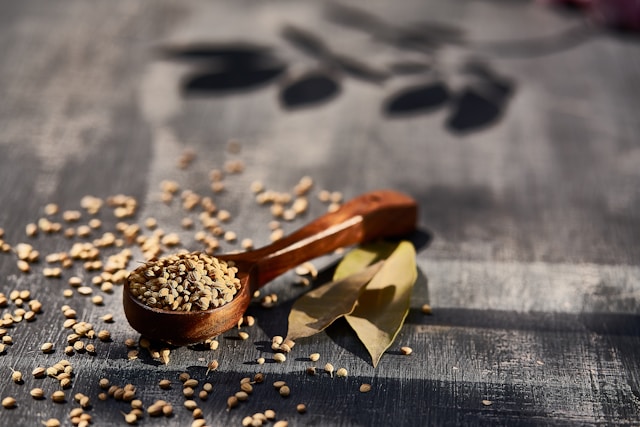A few weeks ago, my recent visit to Cairo, Egypt served as a poignant reminder of Egypt’s unparalleled ability to captivate the imagination, spanning modern and ancient eras. This extraordinary land bears witness to the narratives of numerous prophets revered by adherents of the three Abrahamic religions. Its rich tapestry of history and stunning landscapes imparts a sensation akin to entering an open-air museum.
Amidst the enchantment of Egypt’s heritage, one finds a botanical treasure with profound health benefits—coriander.

Accompanied by my friend Abdoulaye Diouf, who is studying in Egypt and originally from Senegal, we embarked on a journey through the vibrant streets of Cairo. Together, we strolled through the well-lit alleyways, alive with the hustle and bustle of evening commerce. The city’s vibrant energy led us to a shop adorned with colorful spices and fragrant teas, where we were greeted by the enthusiastic storekeeper, Omar. Amidst the array of aromatic treasures, I inquired about the shop’s finest offerings. Without hesitation, Omar’s gaze alighted upon the coriander nestled within a wooden cabinet divided into sections, stood the coriander, its aromatic presence emanating from the squared-off compartment. Adjacent to it, other herbs resided in similar wooden boxes, each section housing a different aromatic treasure. His conviction echoed the reverence held for this ancient herb.

Egypt’s legacy of herbs and spices is epitomized by coriander, an ancient herb whose origins trace back to the fertile soils of the Nile Delta. Revered for millennia, coriander’s therapeutic properties have garnered scientific attention in recent years. Studies suggest that coriander possesses potent antioxidant and anti-inflammatory properties, attributed to its rich content of bioactive compounds such as flavonoids, polyphenols, and terpenoids. These compounds have been shown to combat oxidative stress, reduce inflammation, and promote overall wellness.
Coriander’s medicinal prowess extends to its ability to support digestive health. Research indicates that coriander seeds contain compounds that stimulate the secretion of digestive enzymes, aiding in the breakdown of food and alleviating digestive discomfort. Moreover, coriander water, made by soaking coriander seeds overnight and consuming the infused liquid, has been lauded for its natural digestive aid properties. Regular consumption of coriander water may help reduce bloating, promote healthy bowel movements and alleviate gastrointestinal symptoms.
Furthermore, coriander has shown promise in managing various metabolic conditions, including diabetes and cardiovascular disease. Studies suggest that coriander seeds possess hypoglycemic properties, helping to regulate blood sugar levels and improve insulin sensitivity. Additionally, coriander’s rich array of nutrients, including vitamins K and C, calcium, magnesium, potassium and iron, contribute to its potential cardiovascular benefits. Evidence suggests that coriander may help lower blood pressure, reduce cholesterol levels and mitigate the risk of heart disease.
Beyond its therapeutic applications, coriander’s versatility extends to culinary delights.
Whether used as a garnish in Egyptian dishes or refreshing beverages, coriander adds flavor and nutritional value to culinary creations. From tangy chutneys to aromatic curries, coriander’s distinct taste profile enhances the culinary experience while imparting health-promoting nutrients.

Even though we highlight the herb in Egypt, coriander is widely available worldwide, including in America, where many people utilize it in everyday cooking and wellness practices.
In embracing this ancient land, where history intertwines with modernity, coriander symbolizes vitality and well-being, enriching both body and soul. With each sip of coriander water and every savory bite infused with its essence, one embarks on a journey of holistic wellness guided by the wisdom of Egypt’s timeless treasures.








